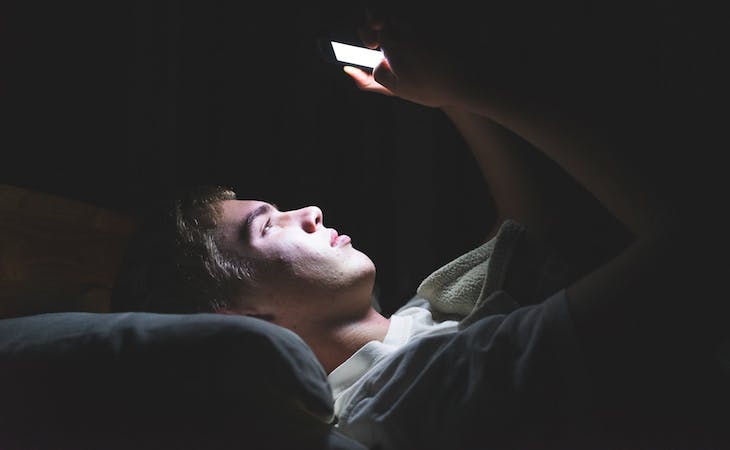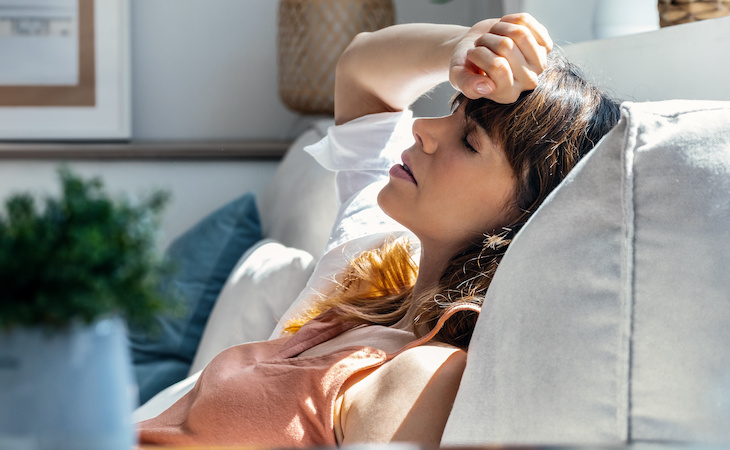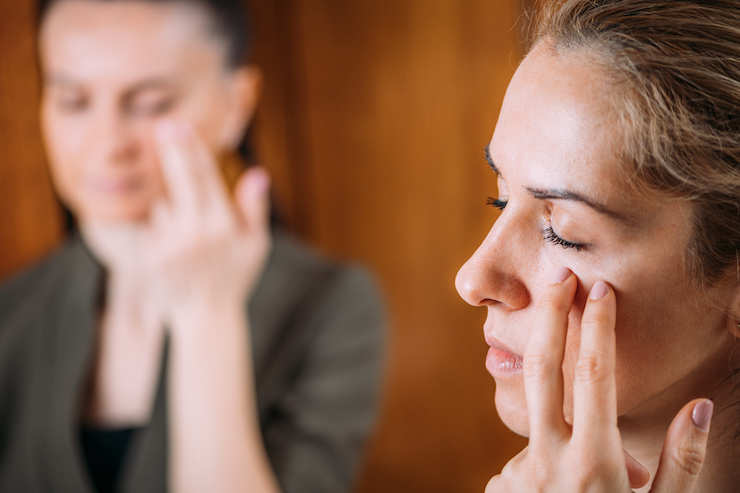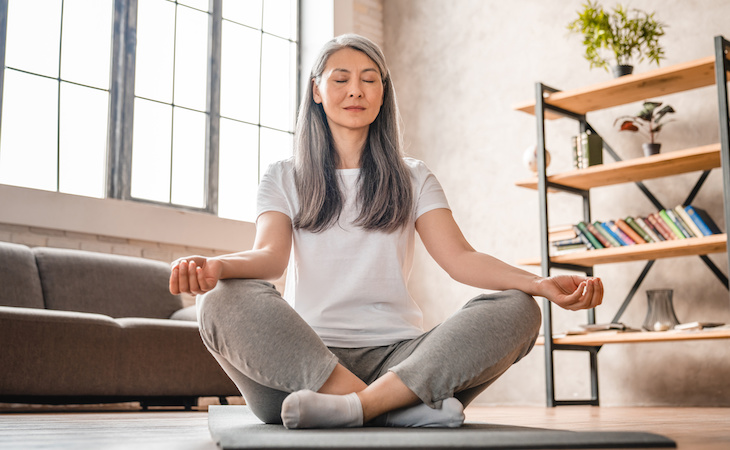By now you know that the bright blue light emitted by your iPhone can keep you up at night—and that pre-bedtime Netflix binges do not a calm, sleep-ready mind make.
Nonetheless, “technology seems like a part of everyone’s bedtime routine,” says Raj Dasgupta, M.D., a sleep specialist and assistant professor of clinical medicine at Keck School of Medicine at the University of Southern California. “You fluff your pillows and get under the sheets to cozy up with your phone in bed.” In fact, some research finds that 71% of people sleep with their phones in their hands, on their beds, or on their nightstands—and that number could be low.
Screen-dimming settings that block blue light (such as the iPhone’s Night Shift) and digital time-use tracking apps also mean we’re now using technology to combat technology, says Dasgupta. There’s a place for tech in your sleep routine—especially if you swear by bedtime meditation apps, for example. But a little bit of separation can do us all a lot of good. Here are three ways to break up with your device before bed.
What to do if your phone is your alarm clock
In and of itself, using your phone as an alarm clock isn’t exactly problematic. But what usually happens, according to Dasgupta, is that you reach over to turn said alarm off and wind up checking the news, emails, or scrolling through your social media feeds (guilty!).
But you don’t have to give up your high-tech alarm clock to have a calmer wakeup. In fact, a new crop of alarm clocks leverages technology in a way that’s more beneficial to your body. For example: alarms that wake you up by simulating a sunrise in your bedroom.
“Light alarm clocks mimic natural sunlight, one of the biggest things that influence circadian rhythm,” explains Dasgupta. How they work: Light from the device gradually increases in the manner of a sunrise: from red to orange to bright white light that wakes you up naturally over a period of around 30 minutes (for heavy sleepers, these devices typically also include conventional buzzers or radio alarms). Try: Philips Wake-up Light.
If you must use your phone as an alarm clock, consider placing it on Do Not Disturb mode, which stops notifications, alerts, and calls from lighting up the device overnight.
What to do if you’re addicted to the pre-bed scroll
Instagram, Facebook, work emails: If you spend your precious moments before bed in the trenches of tech, it’s time to clean up your sleep hygiene. Stimulus control, Dasgupta says, means that the bed is for one thing only: sleeping. “When you stay in bed looking at your phone or checking work emails, your body will start associating bed not with sleeping but as time to look at your phone or time to work.”
Leaving your phone behind might seem hard—but you don’t have to totally unplug, Dasgupta says. Trade your Insta scroll or GIF searching for a relaxing podcast or a guided meditation, he suggests. You can listen via Bluetooth headphones and leave your phone in another room. “With audio, you’re not exposed to the screen of a device, and that may help some people.”
Another sleep-friendly option: old-fashioned books. Try a self-exploration or gratitude journal, for example. One study found that people who wrote for 15 minutes a night in a gratitude journal had an easier time falling asleep and reported better quality sleep.
Other research suggests that people who read from a device for 30 minutes didn’t feel as sleepy—and had different brain activity while they slept—than those who cozied up with a paper book.
What to do if you open your eyes, then check your phone
We all do it—some data finds 89% of people check their phone within an hour of waking up—but tuning into tech right away (especially if it’s work emails or negative news) leads to a cascade of stressful side effects.
Instead of rolling over and reaching for your phone, get outside (phone-free!): Morning bright light exposure can lead to a release of serotonin, a brain chemical linked with good moods. And: “Nothing suppresses the sleep hormone melatonin more than natural sunlight,” says Dasgupta.
You’ll be more alert, relaxed, and ready to face your day—and your device.
One device you should consider adding to your bedroom? A white noise machine. Learn all about how white noise helps you sleep.








